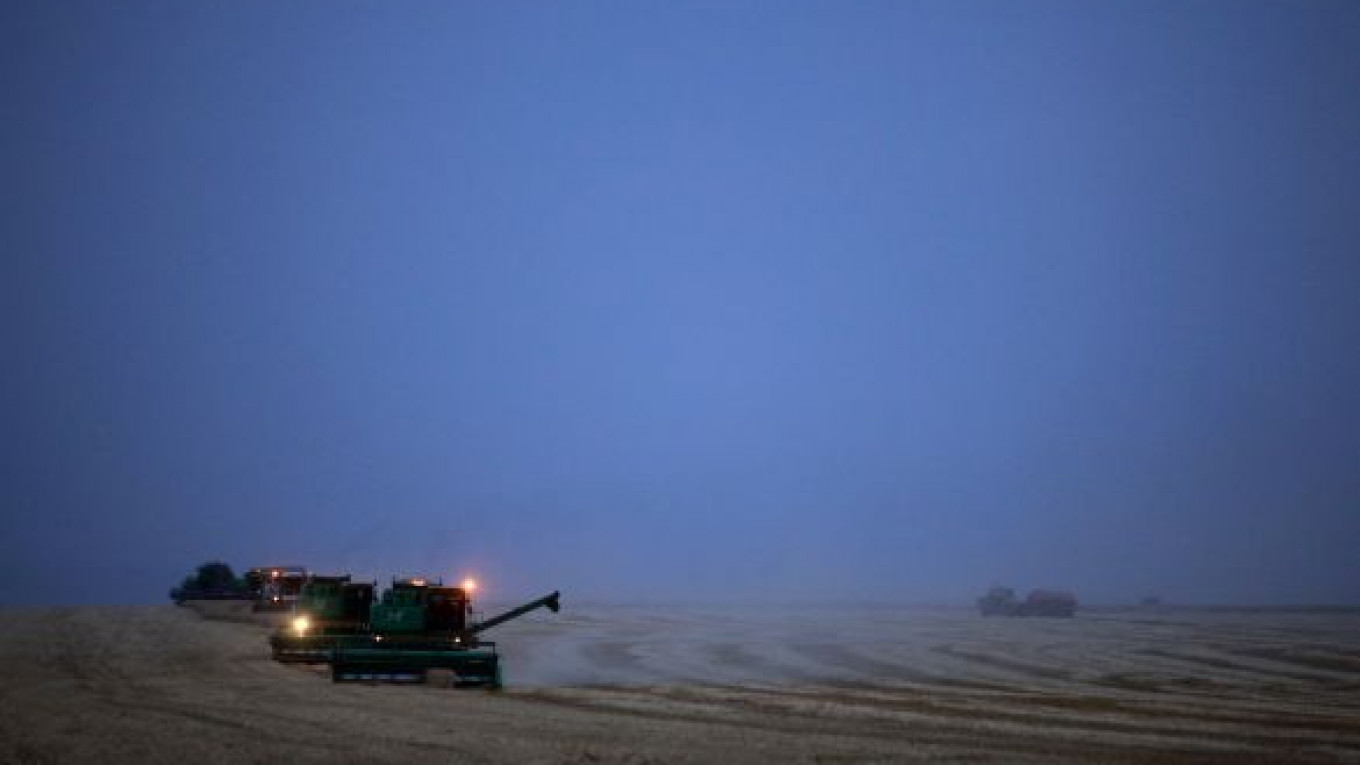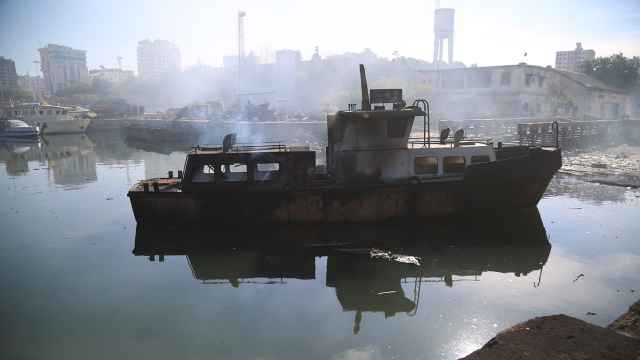Enjoying a healthy crop outlook this year, Russia is already on its way to restoring export volumes, but rival Ukraine will fall short of major buyers' quality needs, a major producer and exporter said.
Kirill Podolsky, head and core owner of Valars Group, which grows Russian and Ukrainian grain for export, said Russia's core clients, their confidence rocked by last year's export ban, have returned in search of cheap grain. Valars also exports Kazakh grain.
"Yes, GASC [Egypt's state grain buyer the General Authority for Supply Commodities] still bears a grudge," Podolsky said referring to Russia's nearly yearlong grain export ban, after which many buyers had to switch to French and U.S. wheat. "But today, when French wheat costs $275 per ton, the companies who are trading Russian grain at $244 win. And past grudges go into oblivion."
He added that U.S. wheat would also have difficulty competing with Russian and Ukrainian grain at Chicago prices of $250.
The ban, set in August 2010 after Russia was hit by a severe drought last year, expired July 1. Customs has already received requests to clear 6.5 million tons of grain for export, of which the country expects to export 1.5 million in July.
Russia exported 770,000 tons of grain in July 1-13.
"The consequences [of the ban] were overcome in the first half of July," Podolsky said. "I believe we may export a minimum of 15 million tons, but it may be more."
Earlier Thursday, Russia's Agriculture Minister Yelena Skrynnik was quoted as saying Russia expected grain exports of 18 million tons in the 2011-12 crop year.
"We shall return to our position on the world grain market," Interfax quoted Skrynnik as saying. "This year's export will total 18 million tons."
Russia exported 18 million tons of wheat in the 2009-10 season and 2.8 million tons of barley.
Podolsky said that as early as last year GASC had started checking the quality of grain at loading. Quality concerns will make it difficult for Ukrainian grain to compete with Russian offers at GASC tenders, he said.
"Lamentably, Ukraine grows wheat of worse quality [than Russia]," he said. "The share of milling wheat is lower, and there is plenty of damaged grain."
"For the Ukrainian wheat, it is difficult to correspond to GASC's conditions," he added. "But on the other hand, private companies buy [Ukrainian wheat]."
Podolsky said current price levels were acceptable to both buyers and producers, many of whom have been forced to put off investment by two years of low prices, first due to high supply, then the government-enforced shut-in.
That price environment, Podolsky said, had caused Russian traders to take positions in expectation of a lower price. They have now been surprised on the upside, he added.
"Traders were betting … that the [wheat] price in 2010 would not exceed $150 [per ton] FOB Novorossiisk," he said. "Currently the price is $244. And even in spring 2010 there was little awareness of what was going to happen. In July 2010 the price was $165-$170, until everyone realized the drought was setting in."
For producers, current levels are enough to stay afloat. "If nobody died at $170," he added, "everyone will be fine at $244."
He pegged prices in the shallow water Azov Sea port of Taganrog, his base of operations, even lower at $210-$220.
Valars production unit Valinor, one of several agribusiness firms to line up for a capital markets debut this year, postponed a Warsaw float as trouble mounted in the euro zone.
Valinor had planned to sell existing and new shares in an initial public offering valued at up to 948 million zlotys ($335 million) to finance land acquisitions and invest in production.
But production fundamentals remain sound, he said.
"We had a crop of 1.2 million tons in 2010," Podolsky said, referring to the crop from the 358,000 hectares of Valars' land in Russia and Ukraine.
"I can't tell about this year. We see yields in Russia have risen to 4.8 tons per hectare from 3.9 tons — which is twice the average in Russia. In Ukraine, yields will be higher than last year, but they will not reach 4.8 tons. In any case, we will have a higher crop."
A Message from The Moscow Times:
Dear readers,
We are facing unprecedented challenges. Russia's Prosecutor General's Office has designated The Moscow Times as an "undesirable" organization, criminalizing our work and putting our staff at risk of prosecution. This follows our earlier unjust labeling as a "foreign agent."
These actions are direct attempts to silence independent journalism in Russia. The authorities claim our work "discredits the decisions of the Russian leadership." We see things differently: we strive to provide accurate, unbiased reporting on Russia.
We, the journalists of The Moscow Times, refuse to be silenced. But to continue our work, we need your help.
Your support, no matter how small, makes a world of difference. If you can, please support us monthly starting from just $2. It's quick to set up, and every contribution makes a significant impact.
By supporting The Moscow Times, you're defending open, independent journalism in the face of repression. Thank you for standing with us.
Remind me later.






